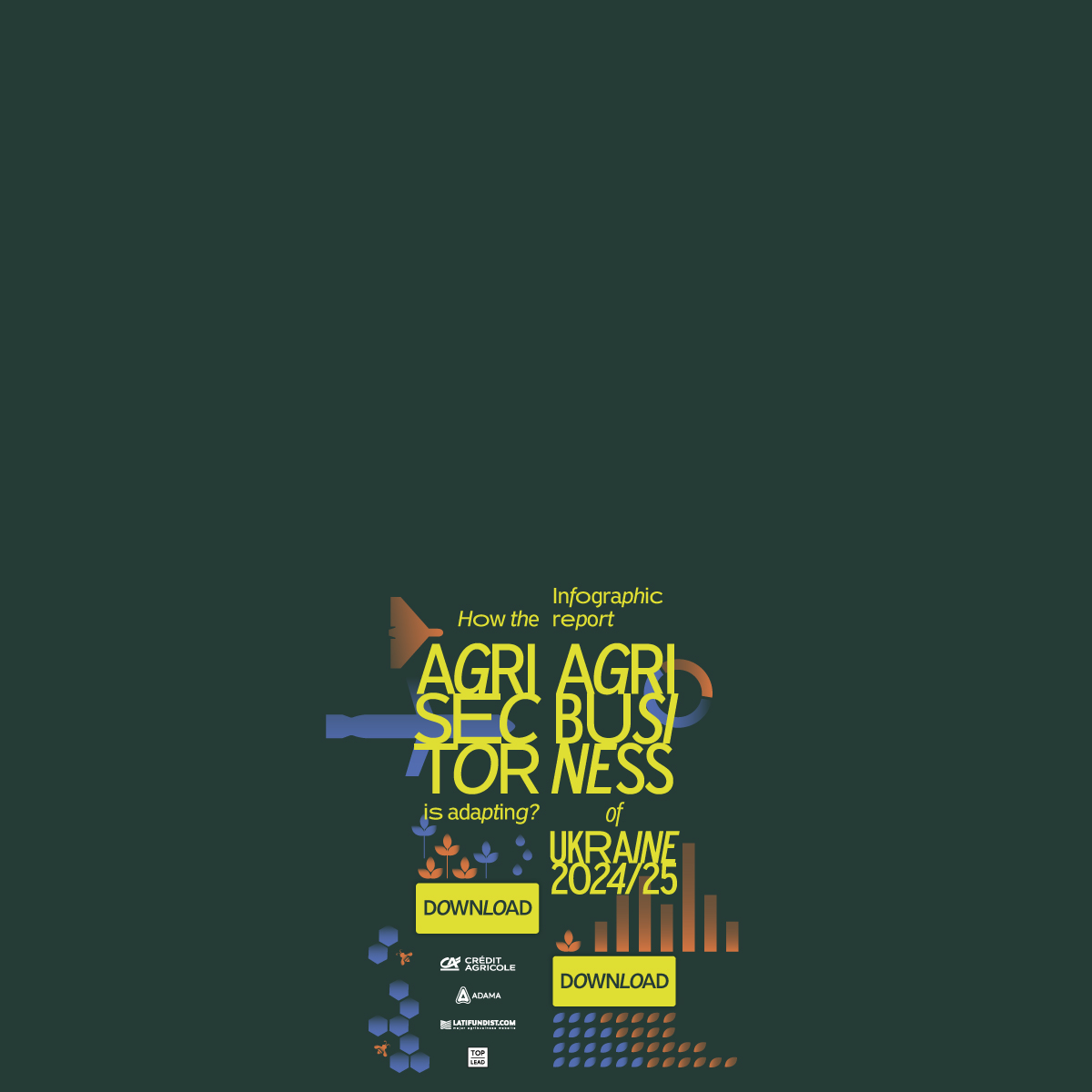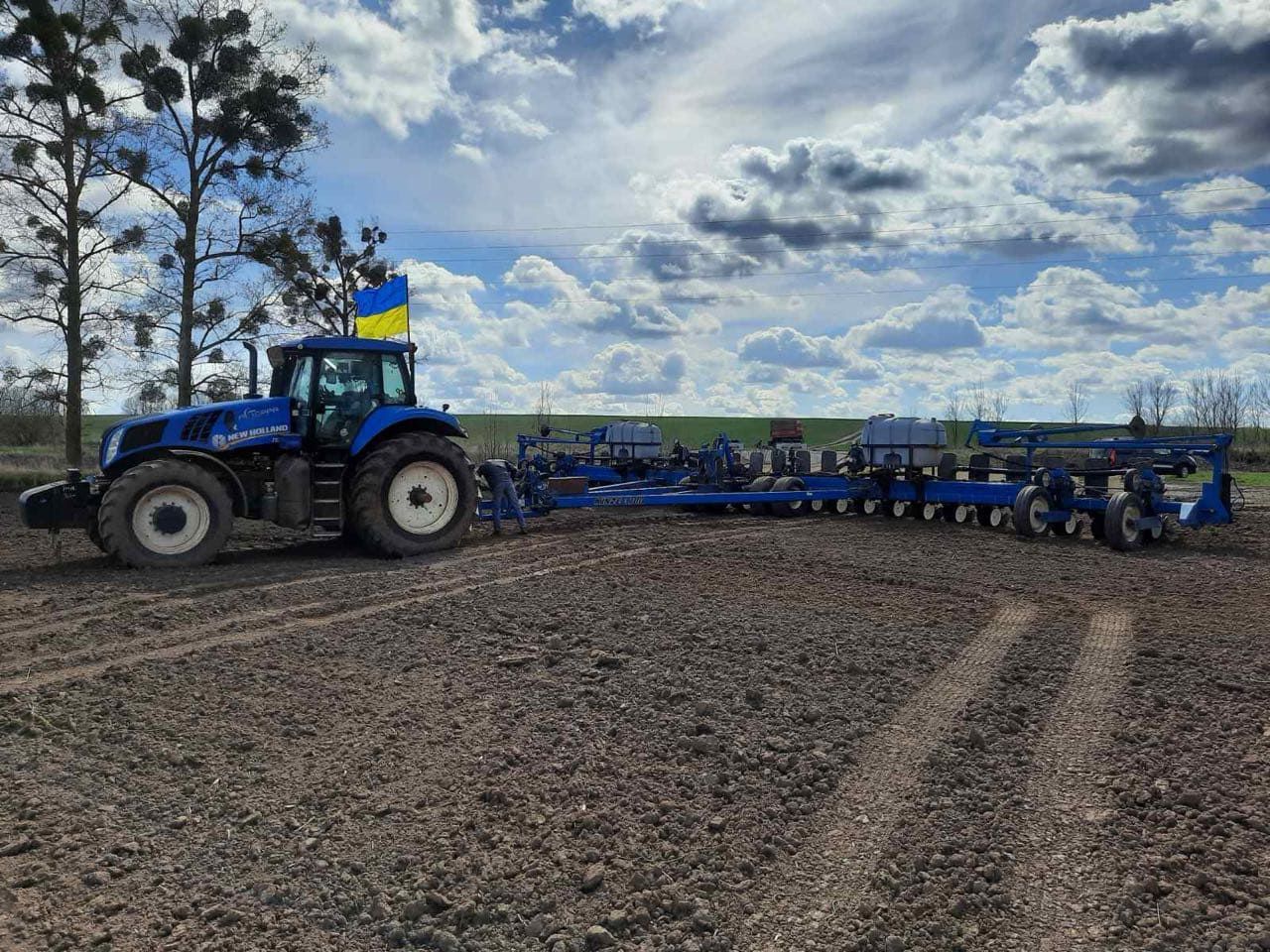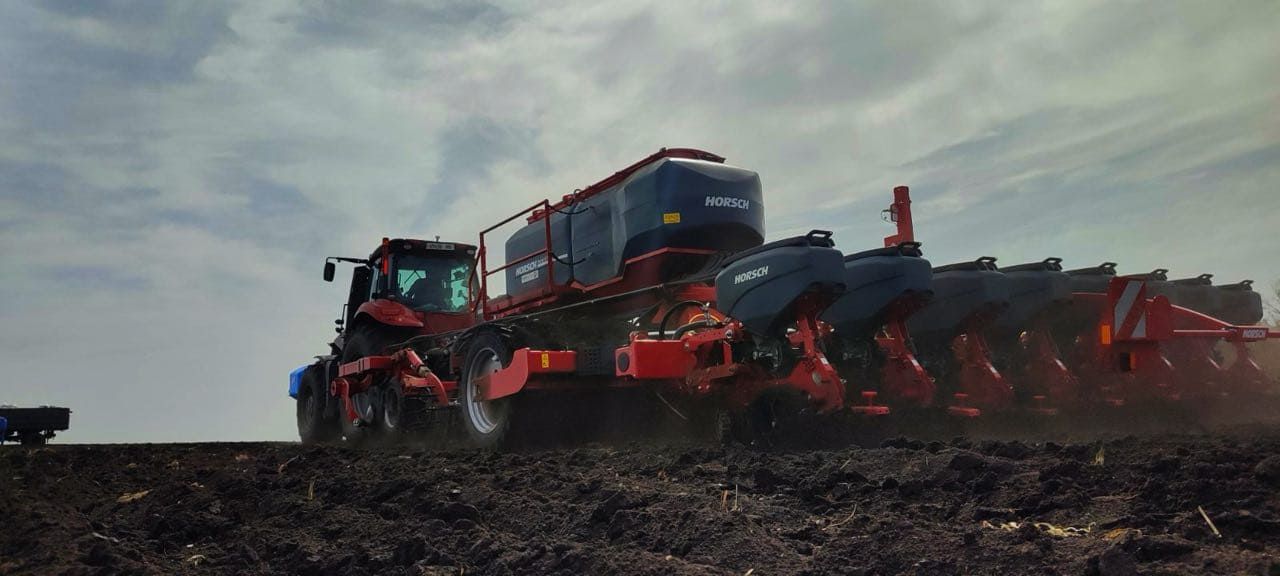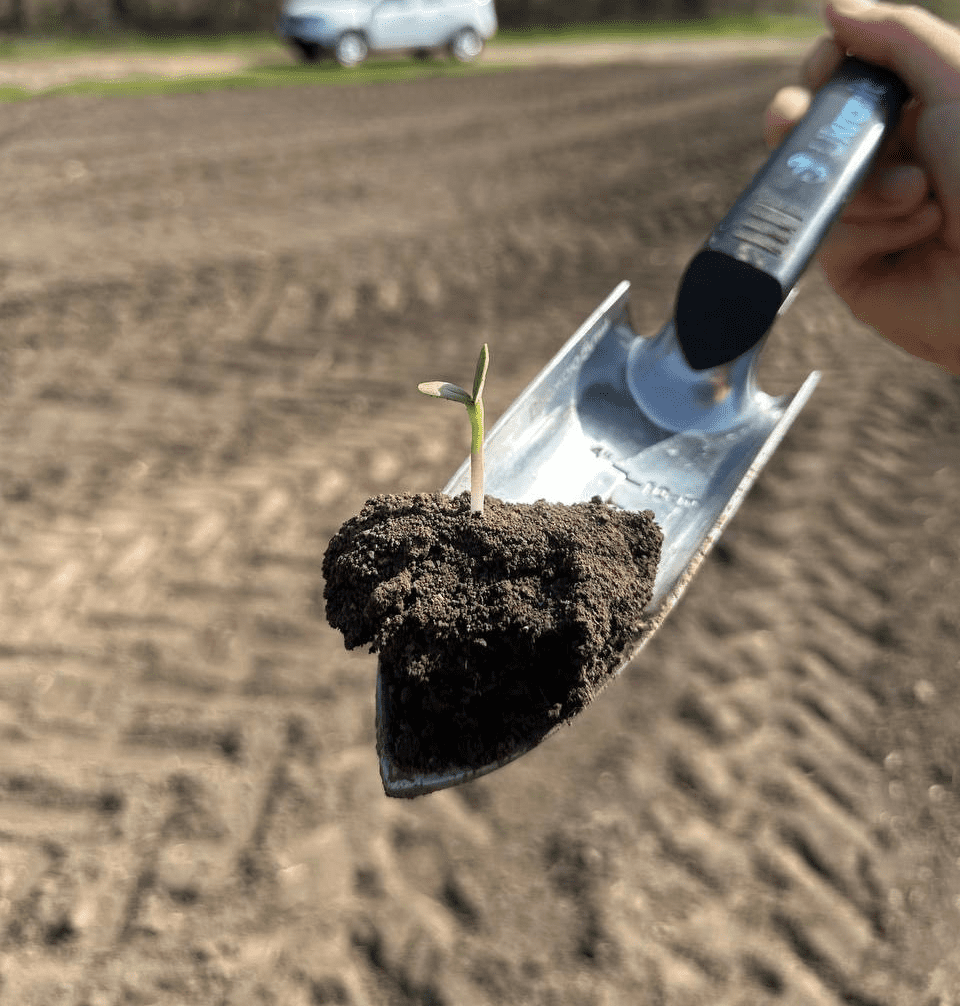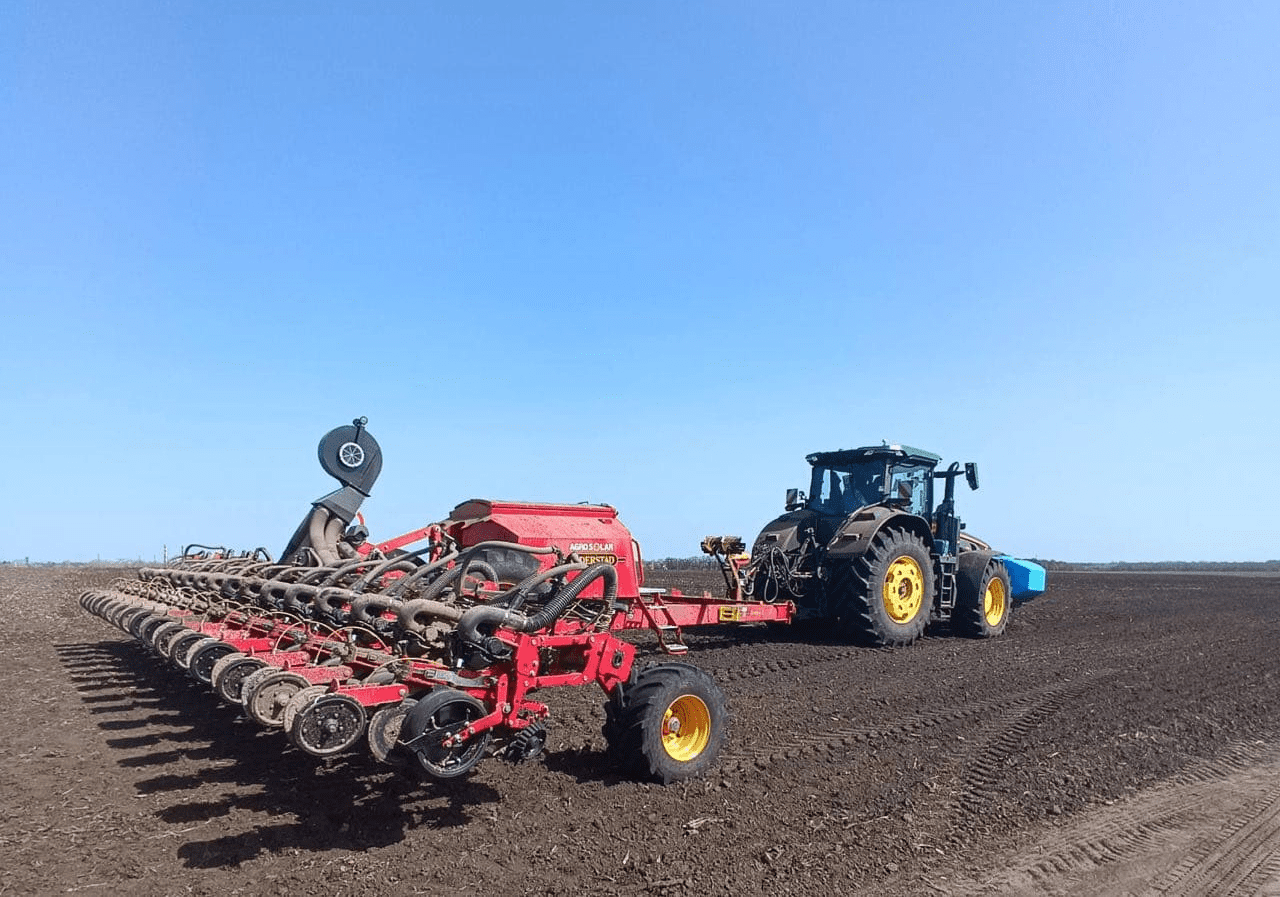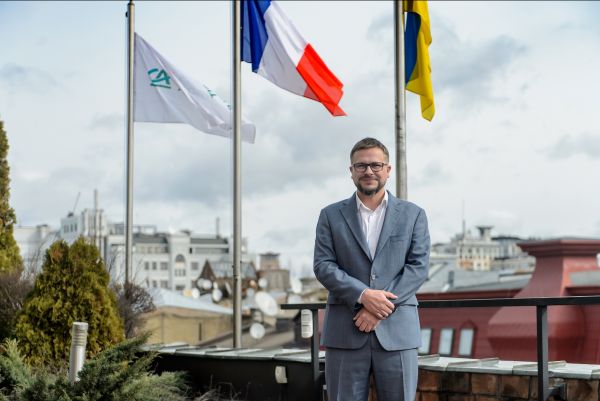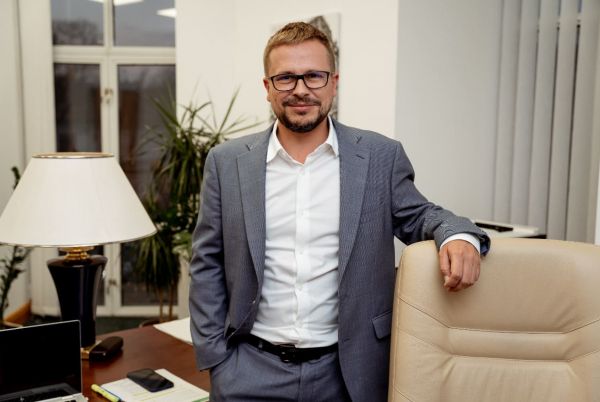Alexandre Tchesnakoff: Everyone Should Gradually Wean Themselves off the 5-7-9 Vitamin Cocktail
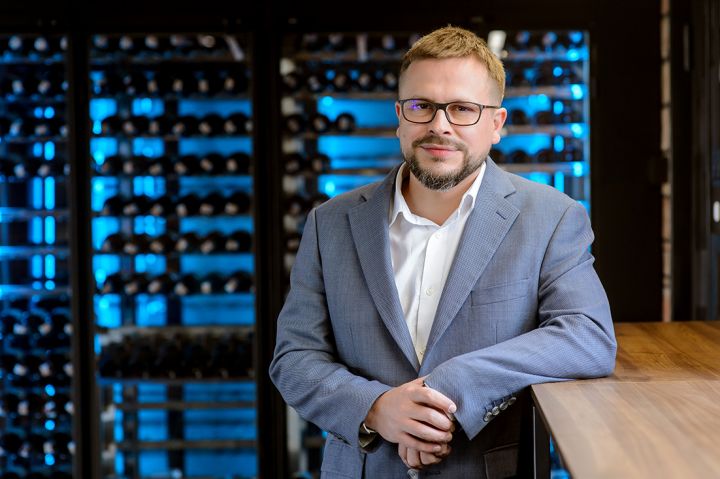
Photo by: Credit Agricole Bank
The banking system and the agrarian system have gradually adapted to operating in the conditions of war. Financing of the spring sowing in 2024 seems more akin to the pre-war times than the shock-inducing year of 2022. What kind of investment would be of advantage at this stage? On what conditions can one obtain bank loans and remain financially resilient in wartime? We discussed it with Alexandre Tchesnakoff, Board Member, responsible for corporate business, agri-agro, small and medium business, and financial markets and leasing at Credit Agricole Bank.
The red zone can be a different red
Latifundist.com: The third war-time sowing has launched. Has the number of risks grown in the meantime?
Alexandre Tchesnakoff: Our preparation for the current sowing quite resembles that prior to the war. We are getting ready for the increased number of applications and thus more work. We are confident that we will handle it all. For this purpose we have a team and a profound expertise, as we started working with the agrarian business in 2009, it is our strategic area. Financing of the agribusiness accounts for 50% of the bank’s entire corporate loan portfolio. According to the survey by Euromoney 2023, we are No.1 in cash management in Ukraine.
Financing risks did not go anywhere in the context of war, but we adapted our processes to the current reality and are better prepared to meet the demand for financing than at the start of the war.
Latifundist.com: Have you noted that spur-of-the-moment decisions are frequently made on the market nowadays? Great sugar prices — everybody goes off to sow sugar beets, soybean prices have gone up — let’s grow soy. . . This results in over-production, and forces majeures (e.g. Europe has capped Ukrainian sugar at 320 thousand tons per year). Your bank has enviable agrarian expertise. Are you taking into account these issues when making decisions on customers’ requests?
Alexandre Tchesnakoff: These issues existed prior to the war as well. There are always those who try to negate the risks they take by doing a little bit of everything and every industry has players trying to ride the wave of “bitcoin is increasing in value, time to buy”. The Ukrainian market has players like that as well. However, when you see that something is increasing in value, as a rule, it is already too late. That is how it has always been. How do we look at it? Through the prism of the perspective. All processes are cyclical, peaks are followed by declines. And they are not solely due to the war. The key thing we expect from our customers is to show their resilience and to be clear on how they conduct and plan their businesses.
Latifundist.com: How has the bank financed the spring sowing this year? Has the number of applications increased?
Alexandre Tchesnakoff: Currently we are not observing any steep upward trend in applications. The country is at war. The arable lands are sadly shrinking. Whereas the costs for agrarians are growing. As of now, the loan portfolio is showing some growth.
Latifundist.com: How would you describe the financial well-being of your customers? In November of 2022, when we last talked, the farmer was still holding on reserves of the profitable year 2021. Then the problems started piling up. What is it like now?
Alexandre Tchesnakoff: There are several pieces of good news. The sea corridor enabled grain and other exports. Owing to the fact that the Ukrainian military is controlling the sea, Ukrainian land and sea exports have stabilized compared to the pre-war period. Which is great. It has allowed the agrarians some breathing room.
On the other hand, the profit margins have gone down drastically, as prices for most plant products remain low. However, some of our customers manage to demonstrate good results even in these conditions. They managed to properly respond to the challenges, rebuild their logistics and come up with several business development scenarios. It is good news number two.
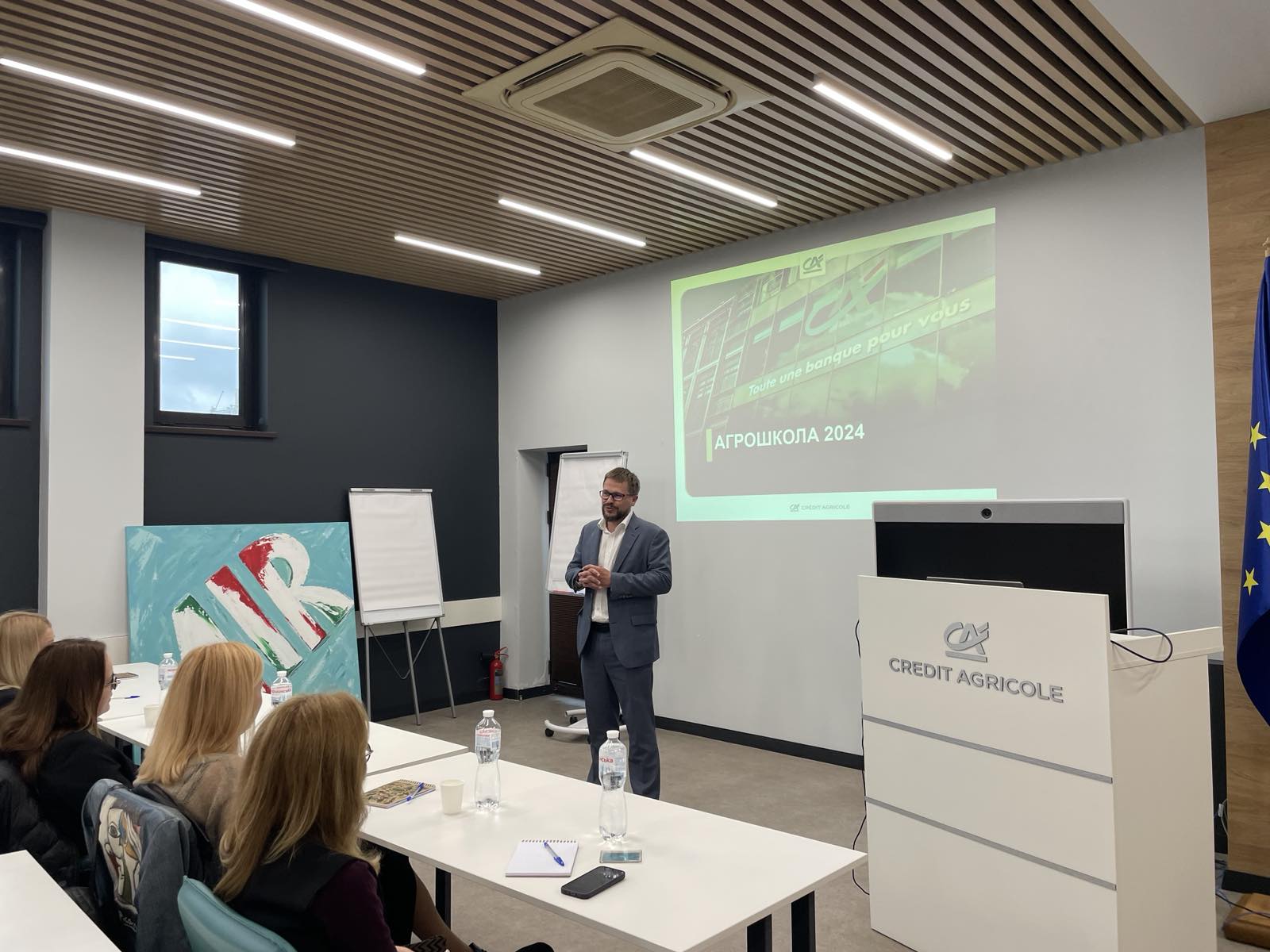
Latifundist.com: What companies have the greater safety margin?
Alexandre Tchesnakoff: Among our customers, there are both large agrarian companies with a significant safety margin, and small farms that are in dire need of support.
Small farmers suffer the most in the current situation. The reasons are manifold. The most struggling farms are those that are remote from seaports, export locations and those that cannot export their produce on their own. Some of them attempted it but could not manage due to a lack of time, expertise, and production capacities. They make up the first category. The second category of farms needing the most support includes those dependent on weather conditions even before the war.
On the whole, considering the unprecedented challenges, and temporary loss of the occupied territories, our customers demonstrated a high level of solvency in 2023. Much better than expected in 2022.
Latifundist.com: In the regions distant from the export locations such as Sumy, Chernihiv, and Kharkiv regions, do your customers go bankrupt en masse or are they still keeping afloat?
Alexandre Tchesnakoff: Bankruptcies en masse — no. But we see that some are selling the land. Their financial behaviour has changed — farmers from the eastern regions are investing more prudently. The two years of war have inoculated them against shocks. Some of them openly share that they are postponing investments and waiting to see the support from the West or election results in the US.
Latifundist.com: In the first year of the war you said that the key parameters on the part of the customers are their ability to generate cash flow and logistics for their products. Thanks to the sea export corridor the logistics has improved. Have you got any additional new parameters, while others have become more trivial?
Alexandre Tchesnakoff: One might say we are slowly returning to the pre-war work system. In the last two years, we have got an idea of how our customers do business in wartime. There were many questions both in terms of logistics and prices. We still take into account both cash flow and logistics, while other indicators matter as well: what are our customers’ investment plans, whether they are looking to diversify their activity or expand the list of agricultural crops. There can be various transformations. Thus we are coming back to the pre-war algorithm but taking into account the ongoing war.
Latifundist.com: Does Credit Agricole Bank, like the majority of players on the market follow the traffic light principle? The green zone is the most secure budget, yellow involves some risks, the red is better to avoid cooperation. . . Still, the traffic light principle has many cons. Which of these zones should Odesa region be categorized as, since it is vast and non-homogeneous?
Alexandre Tchesnakoff: The traffic light does exist. When one needs to respond swiftly, clear straightforward rules are needed. Yet, additional factors should not be discounted either. Even within one region of Ukraine, the situation may be different.
The zone is not the single definitive factor when making a decision. The red zone can be a different red. We take into account our customers’ adaptation: what they do, what they are producing, how they are doing business in general in wartime…
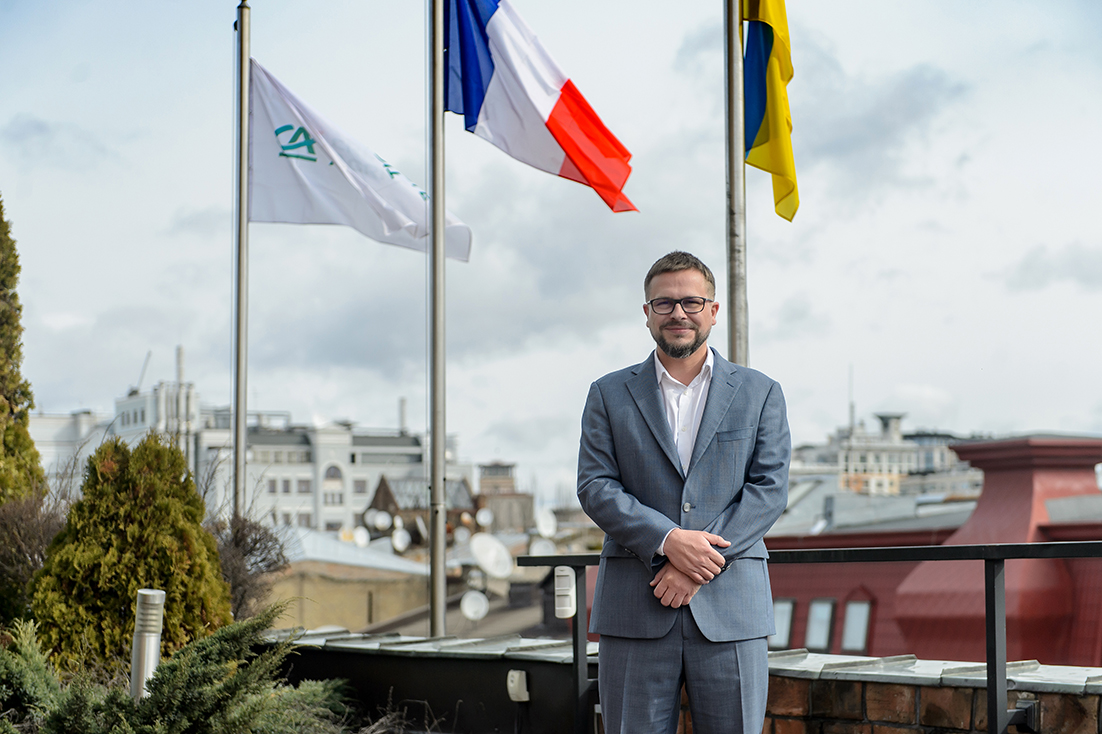
Those willing to take risks in moderation have shown the greatest resilience
Latifundist.com: To recap, in the years of your operations in Ukraine and the two years of war, what farms have proved to be the most resilient?
Alexandre Tchesnakoff: The more resilient companies are those with a land bank of 10 to 15 thousand hectares that produce more than the so-called monocrop. Even better if they have processing facilities and animal husbandry. It also helps with stability. It is nearly impossible to have a year when everything goes great and similarly when everything goes wrong with your finances. Those who are willing to risk in moderation and adapt their working tools regardless of the situation have shown the most resilience. What has changed since the war started is that some agrarian companies have also become traders. Not all of them have succeeded but there are many positive examples. When you discover a new business, a new potential source of income, you gain an extra “leg up” for stability.
When you learn to make a great product for Ukrainian consumers, you will then go further and export it
Latifundist.com: The war is making many producers take a new look at animal husbandry: from the point of view of the grown raw material and the source of added value. Are you seeing a trend in how animal husbandry is developing in Ukraine? Are animal farming complexes getting financing more easily now?
Alexandre Tchesnakoff: I wouldn’t say it’s a notable trend. Animal husbandry is a complex industry. It is unlikely for the profit margins of animal husbandry to be as high and predictable as they used to be for plant farming.
We are willing to consider this industry, just like we did before the war. But we need to see that the person looking to start this type of business is aware that it is not easy: it requires expertise, significant investments, and willingness to do it for 10 years at the very least.
Latifundist.com: To expand upon the subject of processing. . . Half a year ago I spoke with a banker who said that processing is surrounded by the media noise, while the specific projects are actually quite few. But during our talk a month ago he said that the situation has evolved drastically. A host of applications in just half a year. Similarly, at the conferences, we see numerous projects on processing rapeseed, soybean, oil crops, millet, and even more niche crops. Have you encountered such a boom among your customers?
Alexandre Tchesnakoff: We do get slightly more applications compared to the pre-war time. However, there aren’t too many of them. Many customers are still at the stage of deliberation, much fewer of them are willing to realise their projects.
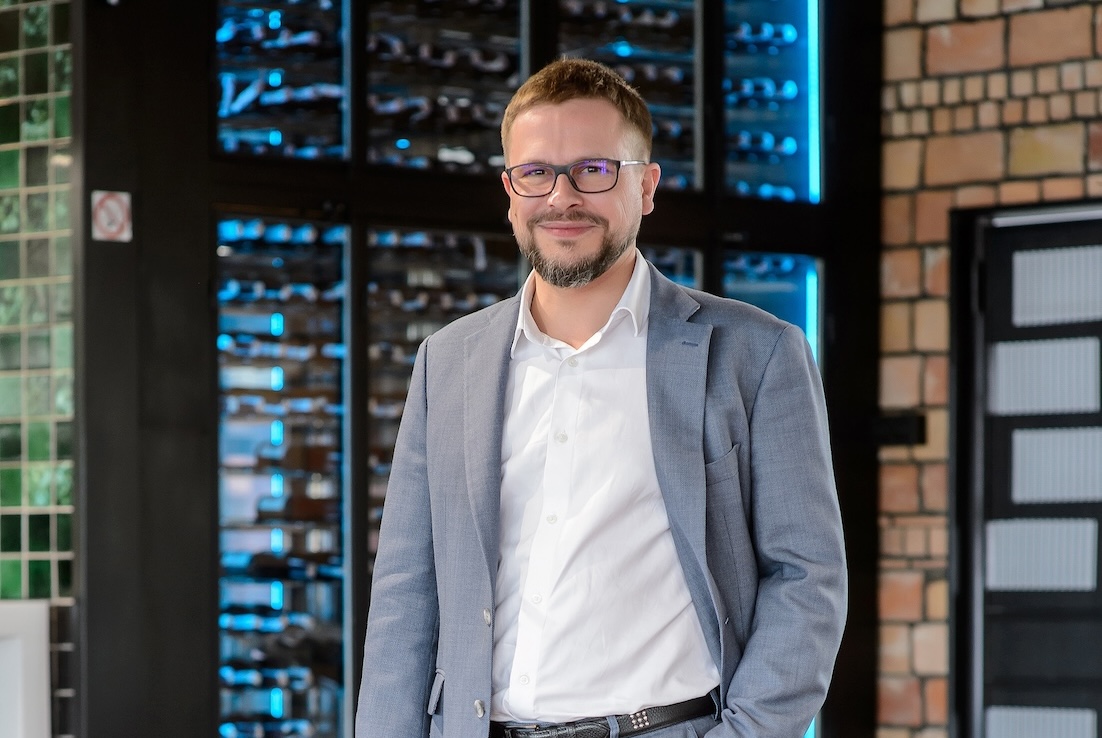
Latifundist.com: What typical mistake have you noticed in applications for processing? I often see people use plant or factory categories. They know how to build it, and which goods it is going to produce, but they often omit planning for the markets.
Alexandre Tchesnakoff: It does happen. Also, entrepreneurs often underestimate market competition. Building a plant is good. This creates a trend, which has the right to exist and will bring value for the country and for the agrarian industry if the processing grows. However, when we have a situation when everyone wants to do the thing at the same time, it is clear that only a limited number of players will win. In the end, butter, flour or any other product must be sold on the market. Not many people study the entire process from A to Z.
Latifundist.com: At the processing conference one banker expressed an idea that many potential processing companies are tempted by the low price of the raw materials. But this situation may be over just as it started. Do customers who come to you with projects have to show you various development scenarios?
Alexandre Tchesnakoff: We are writing the scenarios ourselves. A plant is a long game, taking more than one year. The customer must show how the project that appeared under certain market conditions is to be implemented when the circumstances change. If the demand for raw materials goes up, they will increase in price. Another development scenario. Currently, customers frequently use the export argument. I dream of the day when Ukrainian manufacturers start producing goods for themselves, for Ukraine.
Latifundist.com: Our market is quite small, that is why many view exports as the primary target.
Alexandre Tchesnakoff: So what if it is small? If you learn to produce something great for yourself, and for Ukrainian consumers, you can go further. I would like for Ukraine to have a good full production cycle created. In Ukraine and for Ukraine. This way we will have goods with added value and will be able to export them. Especially if they are better and more unique. I believe that such time will come.
Because oil is just oil, flour is just flour… One must truly dominate one’s segment in order to succeed in the international market.
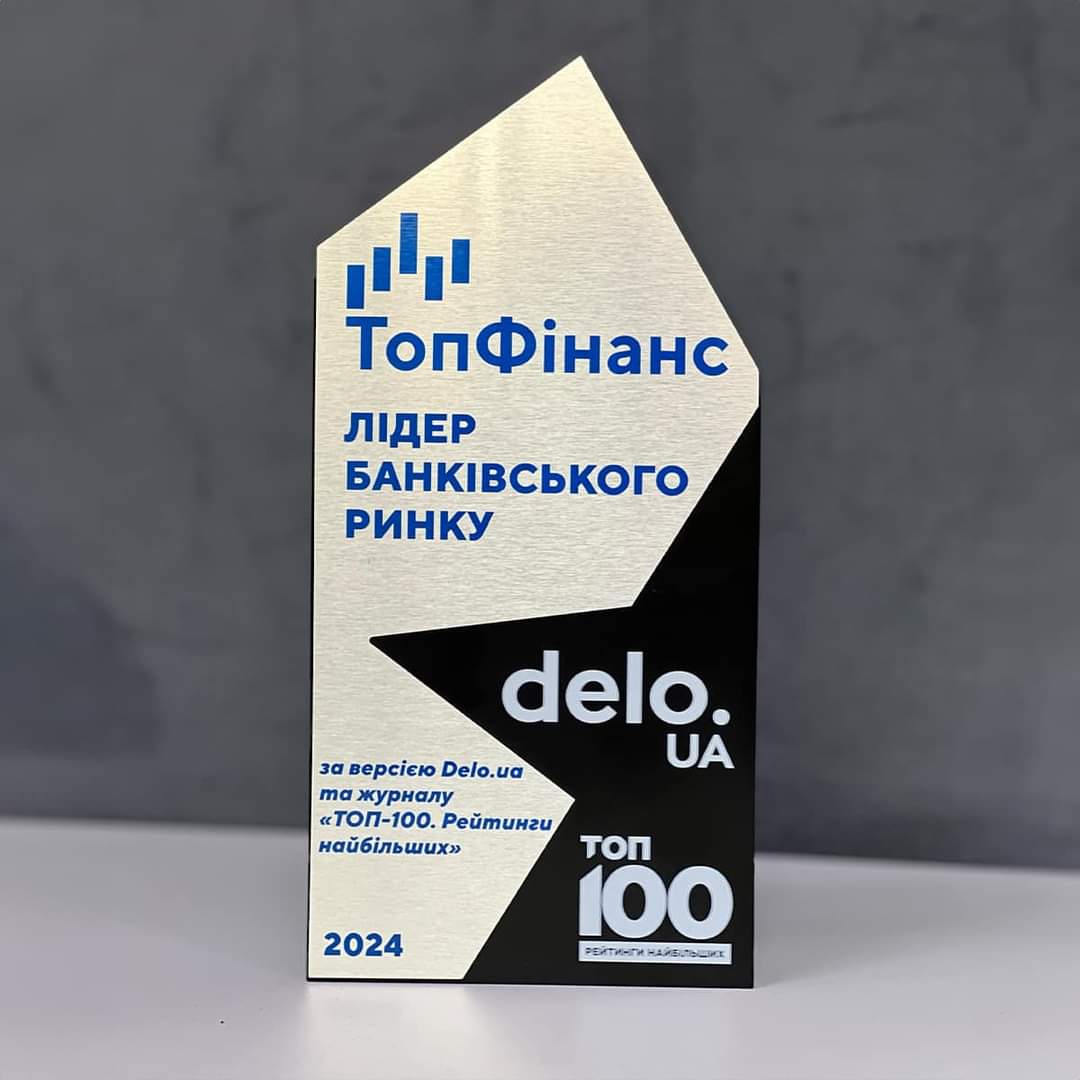
It is better to have more legs than two or three
Latifundist.com: Recently one of the banks agreed to finance the construction of a millet processing plant when it was 75% ready. Meaning that only the remainder of the funds was borrowed. Nowadays the banks are unlikely to offer financing when the foundation is laid, is that so?
Alexandre Tchesnakoff: At this point in time it is unlikely indeed. Even before the war it hardly ever happened in Ukraine as such things require additional expertise. Project financing involves a different banking model and different risks. The planning horizon is still very limited in Ukraine, unfortunately. Even before the war, various crises would hit — both economic and political, and the laws would change inexplicably. Such things prevent the banks from working in Project financing.
Latifundist.com: When we spoke before, construction of “dry ports” at the border was booming. Similar projects still exist: some people bought rolling stock, carriages. . . What is the situation like with applications for logistics, for trans-shipment?
Alexandre Tchesnakoff: The hype we observed at the start of the war has subsided. The latest thing we noted at the end of the previous year and at the start of 2024 is that people are buying ships.
Latifundist.com: Is anybody else besides Kernel doing that?
Alexandre Tchesnakoff: Yes, there are others. Clearly not many, as it is a luxury, so to speak. As for other investments, they have predominantly been made in the first year and a half of the war. First, it was Europe, then the Danube direction. Currently there aren’t any such large investments as Ukraine has covered its logistics needs in all areas.
Latifundist.com: At the time did you regard the abovementioned Danube or other terminals at the border with optimism or with caution? Are the “dry ports” at the border going to be open-sky monuments?
Alexandre Tchesnakoff: Now we can see that the war is not going to be over tomorrow. At the start of 2022, there was hope that the war “will be over by Christmas”. It never happened. In the end, these investments have proved useful. There was a moment when they helped to save the country. I believe that many of them will pay for themselves fairly quickly. What will happen after the war? It is hard to predict.
Will the EU accession happen? When will Ukraine become an EU member? What routes will be the most in-demand? It is not clear yet. Once again, we are faced with the realization that for stability it is better to have more legs to stand on, than two or three. It is more sustainable, just the laws of economics.
After the war, prices on logistics will undergo various changes. Maybe sea freight will become cheaper. Perhaps it will be more profitable to export to Europe than through the Black Sea… Therefore the entire funded logistics infrastructure is sure to be of advantage.
Latifundist.com: Which one would you be more willing to finance: a small trans-shipment at the Slovakia border or an expansion of a Black Sea terminal?
Alexandre Tchesnakoff: Currently there is little demand for brand-new facilities. Recently there has been an application for investment in a transshipment terminal at the Slovakia border. The customer has kept up operations since the start of the war, is quite stable, and deals with grain as well as with other goods. So we invested in the project.
As for the Black Sea ports, why expand them? Their transport capacities were enormous prior to the war and now they are far from being utilized at 100%. We all know the reason. Meaning, at this point in time investments aren’t even needed. Then the time will tell. We will base our decision on what the potential customers will show and tell us.
Latifundist.com: You recently restructured the debt of NIBULON. By how much has the number of requests for debt restructuring changed in wartime? Does it happen that the companies are trying to use the ongoing war as a shield in order to delay loan repayment even if the situation is relatively stable?
Alexandre Tchesnakoff: There may have been a couple of such cases with requests for debt restructuring at the start of the war. Now — not really. Restructuring may sound good. However, it may have significant implications for the business. It will be seen in a different light by your bank as well as by other banks. It will last for years. It will also mean that you will have to rebuild your reputation.
NIBULON is a very successful case. If we compare the situation a year and a half ago and today, the restructuring was extremely useful for them, their business was reformatted very correctly.
Latifundist.com: Credit Agricole Bank has been actively granting car loans to individuals and now has resumed automotive lending for businesses. Does leasing concern exclusively car lending?
Alexandre Tchesnakoff: Car lending and everything that has to do with equipment. We would like to increase the financing of the farming equipment in order to support our agrarian customers. Since the first year of the war, some people have not managed to invest in combines and all the necessary equipment. We would like to offer them this opportunity with the help of our bank. For this purpose we have beneficial partnership programs with leading manufacturers and dealers of machinery and equipment: John Deere, BERTHOUD, MAN, etc. It is one point.
The second point is of the essence for us. Leasing is a great tool to incentivize the purchase of environmentally friendly machinery. Through the partnership with the EBRD, we are offering our customers to get a grant (cash-back) of up to 10% of the financing amount on such machinery.
At the start of 2024, the ESG was officially launched at the bank and as part of this strategy, we would like to help companies to reach international production standards by saving energy, and resources and reducing carbon emissions. Sustainable development goals are of great importance to us.
We are interested in investments aimed at environmental protection and energy efficiency. For many countries, ESG is in the realm of fantasies, as every entrepreneur has to ponder the question of profitability. The answer is not as obvious as it is in Ukraine following the two years of the war. After the price hikes on petrol, then gas, then deficits of petrol, gas, and electricity, the need to invest in solutions that offer energy independence and cost optimization is clear. We believe that in Ukraine it is possible to implement projects that benefit both the environment and the business. That is why we promoted the ESG initiative.
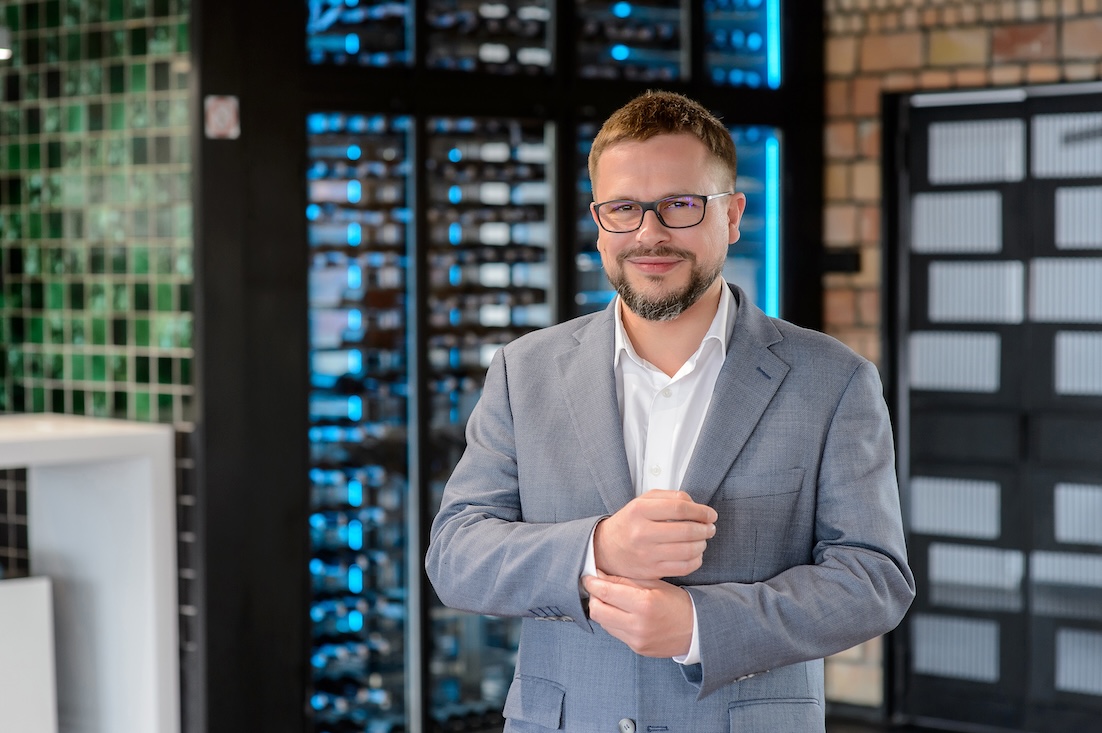
Latifundist.com: Does such demand from farmers to purchase the machinery exist? Is it the case of delayed demand?
Alexandre Tchesnakoff: The delayed demand was satisfied in the previous year, I would say. Now we have the new demand as life goes on and just like before the war the machinery grows old and the time to update the fleet comes… The demand is there. We can see it.
Latifundist.com: What do you do to ensure the 5-7-9 Affordable Loans state program for businesses?
Alexandre Tchesnakoff:
Since the war broke out, we granted UAH 5.1 billion of loans under the 5-7-9% Affordable Loans state program. Agrarian companies account for the majority of the borrowers.
The 5-7-9 program was created during COVID-19 to support small businesses. The circumstances have changed with time, and the market adjusted to the new reality. It is on the one hand. On the other hand, the market rates are also going down. The state subsidies are slowly becoming redundant. We are going to reduce financing under the program just like the rest of the market participants. Because the state funds are finite. The war is ongoing.
Everyone should gradually wean themselves off the 5-7-9 vitamin cocktail. It has been really helpful in its time. Now we need to start walking on our own two feet, especially now that the current market interest rates are sometimes lower than those offered by the 5-7-9 program.
Latifundist.com: Ukrainian agrarians are facing complications in their relationship with European neighbours. In your opinion, what should be our message to our European partners to find common ground?
Alexandre Tchesnakoff: Europe is apprehensive that when Ukraine becomes an EU member or when there is unrestricted trade, there will be certain changes to the market conditions. But the market is changing and this process is imminent.
Therefore, we will need to look for compromise. When our two markets are in close cooperation, there will be transformations. France may experience farm consolidation. Ukraine will have to modify its approach to fertilizers, and GMOs. We will need to take steps to meet each other halfway.
Kostiantyn Tkachenko, Violetta Gromova, Latifundist.com
